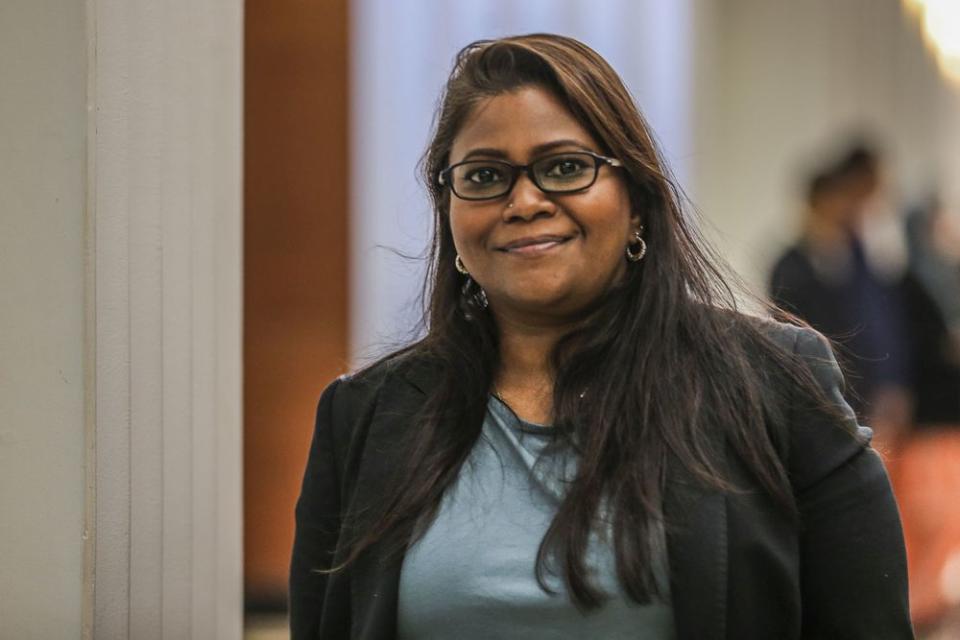As Melaka election looms, Bersih and lawmakers rap EC for still-missing reforms to cope with Covid-19

KUALA LUMPUR, Oct 23 — Two federal lawmakers and electoral watchdog Bersih 2.0 have expressed disappointment with the Election Commission that has yet to introduce any voting reforms to mitigate the Covid-19 pandemic.
With the Melaka state election due on November 20, they noted that EC’s continued inaction meant voters in it and the 15th General Election (GE15) could be forced to vote alongside the Covid-19 pandemic.
They said this would not only pose a health risk, but could also harm the country’s democracy as voters may avoid voting to avoid infection risks or even force elections to be delayed via an Emergency.
“The fact of the matter is that the EC has been given more than a year and a half since the start of the pandemic,” said Bandar Kuching MP Dr Kelvin Yii.
“They should have been more proactive in terms of devising reforms that are necessary to ensure a safer election process during the pandemic.
“I am talking not just about this (Covid-19) pandemic, but I’m talking about other future pandemics as well,” he told Malay Mail.
Batu Kawan MP Kasthuri Patto concurred, saying that while there was still time before GE15, the EC’s “only job is to look after the election”.
She accused the commission of taking a lackadaisical approach to the problem despite having an abundance of resources to draw from.
It was also unclear what direction the Covid-19 pandemic would take, she added.
“Right now there is a form of vaccine nationalism a number of those who have been vaccinated and a number of those who haven’t.
“There is a chance of the virus mutating among the unvaccinated and we don’t know if our current vaccines are capable of fighting off future mutations,” she said, explaining her views on the dangers of having an election with the current regulations.
Both MPs have been pushing for alternative forms of voting to reduce the threat to public health.
In January this year, Dr Yii urged the government to expedite reforms that would allow voters from Sabah and Sarawak residing in Peninsular Malaysia to either vote using postal ballots or via absentee voting.
He cited statistics from Bersih Sarawak, which estimated that 20 per cent of eligible voters from East Malaysia were living and working in the peninsula.
However, on September 15, Prime Minister Ismail Sabri Yaakob told Dr Yii in a parliamentary reply that there was “no provision” for such a change, and instead asked East Malaysians to update their addresses and vote in the constituencies they currently live in.
“Without reforms, (Sarawakian) voters will have to fly back to Sarawak to cast their votes, which can put those living in rural areas at risk, where they have a lack of access to medical facilities,” said Dr Yii.
Kasthuri proposed a more “open minded approach” using e-ballots that would allow Malaysians to cast their votes over the internet.
“The work has to start now,” she said.
“If needed we should call for more Parliament sittings, so that we can table and pass the required constitutional amendments and acts,” she added.

According to Bersih 2.0 chairman Thomas Fann, the EC should have come out with better processes for voters to vote safely instead of relying on restrictions and proclamations of Emergencies to delay elections.
“What is at stake is our democracy and the legitimacy of governments,” he told Malay Mail.
State elections in Sarawak have been delayed after the Yang di-Pertuan Agong proclaimed a six-month Emergency in the state, from August 2 to February 2, 2022, in view of the pandemic.
However, in Melaka, a premature state election was forced after the state assembly was dissolved on October 4.
The EC has set nomination for November 8 and voting on November 20.
Saying the Melaka polls will serve as a litmus test for the general election, Bersih has called for several reforms for the state election including increasing the length of days for nomination and voting, as well as to impose restrictions on campaigning.
The EC has made some minor reforms for the Melaka election, where on October 18, it published a gazette specifically allowing Melaka’s constituents who live abroad in countries close to Malaysia’s borders to register as postal voters
Previously, Malaysians living in southern Thailand, Singapore, Brunei, and Kalimantan, Indonesia were not allowed to cast postal votes.
Similarly, another rule was rescinded, allowing postal voting for Melaka’s constituents living abroad, who had visited Malaysia for 30 days or more in the five years before the election.
Related Articles Malaysia’s Covid-19 cases drop below 5,000 for first time since June Fitch Solutions revises Malaysia’s 2021 growth forecast to 1.5pc as Covid-19 situation improves Hong Kong’s zero-Covid policy undermining financial hub status, says industry group



